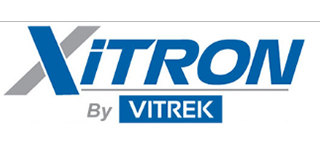Model 1206B/C
GNSS Synchronized Clock
The Arbiter Systems®, Inc. Model 1206B/C GNSS Synchronized Clock is a multi-satellite system (GPS/GLONASS/Galileo/BeiDou) timing source for precision timing applications. Arbiter’s next-generation substation clock provides enhanced performance and security (EPS) along with the wide range of functions you have come to expect from the leader in timing for the power industry.

The Arbiter Systems®, Inc. Model 1206B/C GNSS Synchronized Clock is a multi-satellite system (GPS/GLONASS/Galileo/BeiDou) timing source for precision timing applications. Arbiter’s next-generation substation clock provides enhanced performance and security (EPS) along with the wide range of functions you have come to expect from the leader in timing for the power industry.
EPS benefits include multi-system timing sources, standard holdover oscillator, multiple levels of security, secure communications, and anti-spoofing technology.
The Model 1206 is available in two versions: the Model 1206B and the Model 1206C. The Model 1206B has eight status LEDs, an LCD status back-lit display, and a keyboard. The Model 1206C adds a large (20 mm or 0.8 in) LED time display. Both versions have 72 receiver channels, capable of tracking GNSS satellite systems simultaneously, providing optimum performance. Real time continuous estimation of actual holdover errors, oscillator trajectory prediction and high reliability architecture provide exceptional accuracy and stability allowing the Model 1206B/C (100 ns worst-case accuracy) to meet the requirements of a broad range of applications from relay synchronization to phasor timing. This accuracy applies to the PTP network timing, the high drive programmable pulse (including IRIG-B) outputs and optional outputs. The rubidium holdover oscillator maintains accuracy of 1 μs/24 hours when not tracking satellites. In addition to enhanced performance, Arbiter Systems’ new EPS technology includes GNSS antispoofing and secure password-protected and encrypted configuration interface providing robust, reliable synchronization to help comply with latest NERC-CIP requirements.
The Model 1206B/C timing signals are available via the three Ethernet ports, the thirty-two pin terminal block and from the available option slots. The three 10/100 Ethernet ports (copper standard, fiber optional) provide status, configuration as well as network timing supporting the NTP, SNTP, PTP (Power Profile supported), SNMP, ICMP, TCP, SSH, SSL, HTTP, HTTPS and DHCP protocols. The thirty-two pin terminal block provides access to the Model 1206B/C standard inputs, outputs and serial communication ports. Two inputs, an event timer and a frequency monitor, are included along with six Programmable Pulse outputs, a modulated IRIG-B output, a FET output, relay contacts, two RS-232 ports and a RS-422/485 port (transmit only). The event timer, 100 ns resolution, accepts an external 5 V CMOS/TTL signal while the frequency monitor accepts a single phase AC voltage input (50/60 Hz, 300 Vac). The Programmable Pulse high-drive outputs (5 Vdc, 125 mA) are user configurable to unmodulatedIRIG-B (UTC, Local, C37.118.1) or pulse output (one pulse a second to one pulse a day).
The modulated IRIG-B outputs a 4 Vpp (20 ohms source impedance) signal and supports C37.118.1. An SPDT (form C) fail-safe relay is also included and is configurable to Out-of-Lock, Fault, Alarm, Stabilized, or Programmable Pulse. Three legacy serial communications ports (two RS-232 ports and a RS-422/485 port (transmit only) are included for monitoring and status information. Optional outputs include frequency, (5, 10, 1.544, and 2.048 MHz), configurable fiber optic, configurable 24 V, additional programmable pulse, and additional modulated IRIG-B outputs.
The Model 1206B/C accepts one or two power supplies in a redundant configuration and redundant GNSS inputs.
Standard power options include an 85 Vac to 264 Vac/100 Vdc to 350 Vdc or 22 Vdc to 67 Vdc supplies with secure terminal strip inlets and surge-withstand capability.
The surge-withstand network is designed to meet ANSI/IEEE C37.90-1 and IEC 61000-4 specifications. Also included is a built-in lightning arrestor and rear panel ground plate to protect against secondary lightning strikes and other antenna coupled surges.
























